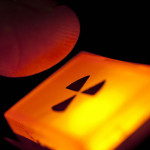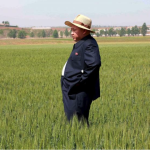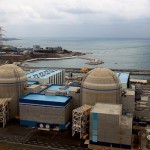- DETERRENCE: Cyber threats and the challenge of de-alerting US and Russian nuclear forces
- DPRK: North Korea drought ‘worst in a century’
- GOVERNANCE AND CIVIL SOCIETY: South Korea axes four coal plants, plans two new nuclear units
 DETERRENCE: Cyber threats and the challenge of de-alerting US and Russian nuclear forces, Andrew Futter, NAPSNet Policy Forum (16 June 2015)
DETERRENCE: Cyber threats and the challenge of de-alerting US and Russian nuclear forces, Andrew Futter, NAPSNet Policy Forum (16 June 2015)
Futter outlines the cyber-vulnerabilities of nuclear forces, especially Russian forces on 24-7 alert, to third party cyber interference, miscalculations and accidents. Kaspersky’s report on Equation Group cyber-espionage and warfare since 2001 suggests this threat to strategic stability is urgent.
- SCADA Security: How Britain can reinforce its nuclear and weapons control systems against cyber threats, Deborah Galea, International Business Times (30 April 2015)
- De-alerting and stabilizing the world’s nuclear force postures, Global Zero Commission on Nuclear Risk Reduction (April 2015) [PDF, 3.5MB]
- Equation: The death star of malware galaxy, Great, Kaspersky (16 February 2015)
 DPRK: North Korea drought ‘worst in a century’, U.S. Department of State (5 June 2015) [PDF, 522KB]
DPRK: North Korea drought ‘worst in a century’, U.S. Department of State (5 June 2015) [PDF, 522KB]
North Korea says it is suffering the second drought of a century in the past three years. Droughts and global climate change writ large pose quadruple threats to its existing regime. Drought means 1) poor harvests and more people turning to markets; 2) lower than projected water stores and hence lower than projected hydropower available; 3) lower than projected hydropower imposes economic costs on the limited industries that do exist; 4) less hydropower means North Korea will turn to other forms of energy such as coal and biomass which are likely to further degrade North Korea’s environment. However, drought also increases the chances North Korea will ask for food aid and presents the international community a limited opportunity for discussions that are not prompted by threats and to prevent shocks to the system.
- Foundations of energy security for the DPRK: 1999-2009 energy balances, engagement options and future paths for energy and economic redevelopment, David Von Hippel and Peter Hayes, NAPSNet Special Report, Nautilus Institute (18 December 2012)
- Outlook for food supply and demand in 2014/2015 in the Democratic People’s Republic of Korea (November/October), Food and Agriculture Organization of the United Nations (3 February 2015) [PDF, 1.46 MB]
- Enduring legacies: economic dimensions of restoring North Korea’s environment, Peter Hayes, Nautilus Institute (18 October 1994)
 GOVERNANCE AND CIVIL SOCIETY: South Korea axes four coal plants, plans two new nuclear units, Reuters (8 June 2015)
GOVERNANCE AND CIVIL SOCIETY: South Korea axes four coal plants, plans two new nuclear units, Reuters (8 June 2015)
The ROK has moved to shut down a nuclear reactor for the first time, marking what some call a victory for civic groups against the use of nuclear power. However, it also has plans to build two new nuclear units, restart another nuclear reactor and is aiming to run a total of 36 reactors by 2029, an increase from 23 reactors currently. Given these numbers, it seems clear that a shift away from nuclear power is not in the ROK’s near future.
- A sustainable South Korea should stick with nuclear, Sanghyun Hong, East Asia Forum (21 May 2015)
- Government votes for the first time to decommission a nuclear power facility, Song Kyung-hwa and Park Hyun-jeong, Hankyoreh (13 June 2015)
- Table—S. Korea to restart Hanbit No. 2 nuclear reactor—watchdog, Reuters (11 June 2015)

